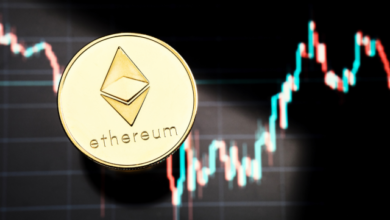Fees and Commissions: Choosing the Best Crypto Exchange

Fees and Commissions: Choosing the Best Crypto Exchange
Navigating the world of cryptocurrency can be daunting, especially when choosing the best crypto exchange to fit your trading needs. With countless platforms vying for attention, making a top cryptocurrency exchange selection often hinges on understanding the complexities of fees and commissions. These costs can significantly impact your trading strategies and ultimately your bottom line. So, how do you tackle the challenge of how to choose a crypto exchange? In this post, we’ll explore the intricate web of fee structures among top exchanges, offering valuable insights on the best platforms for trading cryptocurrency. From breaking down different types of fees to outlining factors to consider when choosing a crypto exchange, our guide provides tips for selecting a reliable cryptocurrency exchange that meets your specific needs. By the end, you’ll be well-equipped for a thorough cryptocurrency exchange comparison, allowing you to confidently decide on the best crypto trading platform for your investments. Whether you are new to the crypto world or an experienced trader, understanding how to select cryptocurrency exchange is crucial for maximizing your profitability and enhancing your trading experience.

Fees and Commissions: Choosing the Best Crypto Exchange Understanding Cryptocurrency Exchange Fees and Commissions
When diving into the world of digital currencies, comprehending cryptocurrency exchange fees and commissions is pivotal. These fees significantly influence your investment strategy and overall profitability. Therefore, choosing the best crypto exchange comes down to a thorough understanding of the costs involved. Here’s what you need to know:
Types of Fees:
- Trading Fees: Generally applied as a percentage of the trade. This includes both “maker” and “taker” fees.
- Withdrawal Fees: Fees incurred when transferring funds from an exchange to your wallet.
- Deposit Fees: Charges levied when adding funds to your exchange account; however, many exchanges offer free deposits.
- Spreads: The difference between buy and sell prices, impacting overall transaction cost.
| Fee Type | Description | Typical Range |
|---|---|---|
| Trading Fees | A percentage of your trade, varies for makers and takers | 0.1% – 0.3% |
| Withdrawal Fees | Charged when moving assets from the exchange | Varies by asset |
| Deposit Fees | Charged for adding funds into the exchange | Free or a nominal fee |
| Spreads | Difference between buy and sell price, affecting transaction cost | 0.02% to 0.20% |
Understanding these components is crucial when considering the top cryptocurrency exchange selection. Your choice should reflect your trading frequency and strategy. Low trading fees might benefit high-frequency traders, while occasional investors might prioritize low withdrawal costs.
Moreover, many trading platforms offer tiered fee structures that reward high-volume traders with lower fees. Therefore, understanding these details is an integral part of evaluating the factors to consider when choosing a crypto exchange. Remember, what works best for one trader might not necessarily be ideal for you. So, conduct a cryptocurrency exchange comparison to ensure you select an exchange that aligns with your financial goals and trading style. Make informed decisions with clarity on fees to enhance your potential gains in the crypto market.
Fees and Commissions: Choosing the Best Crypto Exchange The Impact of Fees on Trading Strategies
When it comes to Choosing the Best Crypto Exchange, understanding the impact of fees on your trading strategies is crucial. Fees can significantly affect your profitability and should be considered alongside security, liquidity, and ease of use. With this in mind, let’s delve into how these fees can influence your trading activities.
First, it’s important to recognize the types of fees typically encountered in cryptocurrency exchanges:
- Trading Fees: These are charged per transaction, often as a percentage of the trade amount.
- Deposit and Withdrawal Fees: These apply when moving funds into or out of the exchange.
- Network Fees: These may occur for transfers on the blockchain network itself.
Now, how do these fees influence your trading strategy?
- Profit Margins: High trading fees can eat into your profit margins. For short-term trades or high-frequency trading, even small percentage-based fees can accumulate quickly.
- Trade Frequency: If you’re a day trader, frequent trading can lead to a significant accumulation of fees over time. Evaluating different fee structures through a cryptocurrency exchange comparison can help optimize your costs.
- Long-term Holdings vs. Active Trading: Lower fees may allow for more significant reinvestment and compounding over time, favoring long-term strategies.
Here’s a detailed look at how fee structures vary among top exchanges, affecting your selection of the best platforms for trading cryptocurrency:
| Exchange | Trading Fees | Withdrawal Fees | Features |
|---|---|---|---|
| Exchange A | 0.1% per trade | $5 per withdrawal | High liquidity, vast selection of cryptocurrencies |
| Exchange B | 0.2% per trade | 0.0005 BTC | User-friendly interface, strong security |
| Exchange C | Tiered fee system | Variable | Offers leverage, advanced trading tools |
Understanding these factors will enable you to make strategic decisions, ensuring that fees do not unnecessarily detract from your hard-earned profits. In conclusion, keeping a keen eye on fees and their impact on your strategy will significantly aid in how to choose the best crypto exchange for your trading needs.
Fees and Commissions: Choosing the Best Crypto Exchange Comparing Fee Structures Among Top Exchanges
When delving into the world of cryptocurrency trading, understanding and comparing fee structures among top exchanges is crucial. Not all exchanges operate with the same fee model, and small differences can significantly impact your trading experience and profitability. As you navigate the decision-making process for Choosing the Best Crypto Exchange, it’s essential to conduct a thorough cryptocurrency exchange comparison to ensure you maximize your investment returns.
Trading Fees: A Deep Dive
- Flat Fees vs. Variable Fees: Some exchanges charge a flat fee, which means a consistent charge per trade regardless of its size. Meanwhile, others employ a variable fee structure, where charges are a percentage of the trade’s total value. A cryptocurrency exchange comparison of this aspect can reveal which is more cost-effective based on your trading volume.
- Maker vs. Taker Fees: Understanding the difference between maker and taker fees is vital. Maker fees are for orders that add liquidity to the market, whereas taker fees are for orders that remove liquidity. Often, exchanges incentivize users with lower maker fees to encourage liquidity. A careful How to Choose a Crypto Exchange examination of these terms may influence your strategy, especially if liquidity is a primary concern.
- Withdrawal and Deposit Fees: Be sure to examine any associated costs for moving your funds in and out of the exchange. These fees vary greatly across platforms, and frequent withdrawals or deposits can eat into your profits over time.
Here’s a quick cryptocurrency exchange comparison table to illustrate:
| Exchange Name | Trading Fee (Maker/Taker) | Withdrawal Fee | Deposit Fee |
|---|---|---|---|
| Exchange A | 0.10% / 0.15% | $10 | None |
| Exchange B | 0.25% / 0.25% | $5 | 0.50% |
| Exchange C | 0.05% / 0.10% | 0.001 BTC | $10 |
Fees and Commissions: Choosing the Best Crypto Exchange The Importance of Comprehensive Research
In the Top Cryptocurrency Exchange Selection process, fees are just one piece of the puzzle. It’s equally important to consider the overall platform experience, security features, and the availability of trading pairs. By conducting a thorough How to Select Cryptocurrency Exchange process, you can ensure that your chosen platform aligns with your financial goals and trading strategy.
Best Platforms for Trading Cryptocurrency require time and due diligence to investigate fully. Keep in mind that while low fees are attractive, they should not compromise other essential qualities such as platform reliability, customer support, and security. In summary, factors to consider when choosing a crypto exchange should always include a comprehensive look at the fee structures, ensuring they align with your trading habits and financial objectives.
Fees and Commissions: Choosing the Best Crypto Exchange Factors to Consider When Choosing a Crypto Exchange
When it comes to Factors to Consider When Choosing a Crypto Exchange, there are several critical points that you should evaluate to ensure a smooth and secure trading experience. Making the right choice is essential, as it can significantly impact your trading success, the security of your investments, and the overall trading experience.
Here are some vital aspects to bear in mind:
- Reputation and Reliability: Opt for exchanges with a strong track record and positive user reviews. A reputable exchange often indicates robust security practices and reliable customer service.
- Security Features: Examine the security measures in place, such as two-factor authentication, cold storage of funds, and insurance against breaches. This can significantly mitigate potential risks.
- Supported Cryptocurrencies: Consider the range of cryptocurrencies available on the platform. Whether you’re interested in popular coins like Bitcoin and Ethereum or exploring altcoins, ensure the exchange supports your preferred digital currencies.
- Fee Structure: Evaluate the fee structure of the exchange. Different platforms charge varied trading fees, withdrawal fees, and deposit fees. Look for transparent fee structures to avoid hidden costs.
- User Interface and Experience: A user-friendly interface can enhance your trading experience. Look for platforms that offer intuitive navigation and powerful tools for analysis.
- Liquidity: Adequate liquidity is essential for executing trades quickly and at favorable prices. Higher liquidity reduces the risk of market manipulation.
- Regulatory Compliance: Check whether the exchange complies with local regulations. Regulatory-compliant platforms are generally safer and more credible.
Here’s a brief table summarizing these factors:
| Factor | Importance |
|---|---|
| Reputation | Security and customer trust |
| Security Features | Protection against hack and theft |
| Supported Cryptocurrencies | Flexibility in trading options |
| Fee Structure | Impact on profitability |
| User Interface | Ease of use for all traders |
| Liquidity | Efficient trade execution |
| Regulatory Compliance | Legality and investor protection |
When deciding how to choose the best crypto exchange, these key factors will serve as a roadmap for an informed decision. Weighing these considerations carefully will enable you to select the best platforms for trading cryptocurrency that align with your trading goals and security needs.
Fees and Commissions: Choosing the Best Crypto Exchange Tips for Selecting a Reliable Cryptocurrency Exchange
When diving into the world of digital currency, tips for selecting a reliable cryptocurrency exchange become invaluable for ensuring both security and success in your trading endeavors. Since exchanges serve as the gateways to the cryptocurrency market, which one you choose can significantly impact your trading experience. Here are some key points to guide you:
- Security: Opt for exchanges that boast strong security measures like two-factor authentication (2FA), end-to-end encryption, and custody solutions for asset storage. It’s crucial to ensure your funds and personal information remain secure.
- Reputation and User Feedback: Investigate the exchange’s reputation by reading user reviews and ratings. Trusted platforms will often have a well-documented history of operations without significant security breaches.
- Fee Structure: One factor underlines many cryptocurrency exchange comparison efforts: the fees. Compare deposit, withdrawal, trading, and transaction fees, ensuring they align with your trading strategy.
- Regulation and Compliance: Ensure the exchange complies with the regulatory framework of its operating region. Licensing and regulatory compliance are hallmarks of a trustworthy exchange.
- User Interface and Experience: A user-friendly interface can enhance your trading experience. Look for platforms that offer intuitive navigation and robust customer support.
Here’s a quick comparison table to help you evaluate exchanges more efficiently:
| Factors | Importance |
|---|---|
| Security Features | High: Protects your assets |
| Reputation | High: Ensures trustworthiness |
| Fee Structure | Moderate: Affects trading profits |
| Regulation | High: Legal assurance |
| User Interface | Moderate: Ease of use |
By following these factors to consider when choosing a crypto exchange, you can feel more secure in knowing that your chosen platform is both reliable and capable of meeting your needs. Taking the time to research these aspects prevents future headaches and fosters a smoother trading journey.
Fees and Commissions: Choosing the Best Crypto Exchange Evaluating the Security Features of Crypto Exchanges
When it comes to choosing the best crypto exchange, security should be a top priority. The rise of digital assets has unfortunately been accompanied by increasing threats from cybercriminals. Ensuring a crypto exchange is secure is crucial for safeguarding your investments. Tips for selecting a reliable cryptocurrency exchange often focus on these critical security features.
Key Security Features to Consider
- Two-Factor Authentication (2FA): This adds an extra layer of security by requiring a second form of identification beyond just a password. Ensure the exchange supports 2FA for account logins and transactions.
- Cold Wallet Storage: Most reputable exchanges store the majority of their funds offline in cold storage to protect them from hackers. Look for exchanges emphasizing their cold storage policies.
- Advanced Encryption: Reliable exchanges use advanced encryption protocols to protect user data and transactions. A secure website will have ‘HTTPS’ in the address bar, signaling encrypted communication.
- Regulatory Compliance: Opt for exchanges that are compliant with relevant financial regulations. This includes licenses from recognized authorities, which can offer an additional layer of trust and protection.
Security Comparison Among Exchanges
| Exchange | 2FA | Cold Storage | Encryption | Regulation |
|---|---|---|---|---|
| Exchange A | Yes | Yes | High | Regulated |
| Exchange B | Yes | Limited | Medium | Unregulated |
| Exchange C | No | Yes | High | Regulated |
Understanding these security features can greatly influence how to choose a crypto exchange. Evaluating which exchange provides the most comprehensive security measures is essential for top cryptocurrency exchange selection. These considerations help ensure you pick a platform that doesn’t just suit your trading needs but also protects your assets from potential threats. By focusing on robust security features, you can confidently search for dependable and the best platforms for trading cryptocurrency.
Fees and Commissions: Choosing the Best Crypto Exchange How to Choose the Best Platforms for Trading Cryptocurrency
Navigating the rapidly evolving world of cryptocurrency trading can be overwhelming, particularly when you’re faced with the task of how to choose the best platforms for trading cryptocurrency. Making the right choice isn’t just about diving into the first popular exchange you come across. It involves a careful evaluation of various factors to ensure you pick a platform that aligns with your trading needs and goals.
When thinking of factors to consider when choosing a crypto exchange, prioritize the following:
- User Experience and Interface: Look for a platform that offers a clean, intuitive interface making it easy to track your assets and perform transactions, regardless of your experience level.
- Trading Fees: Different exchanges have varying fee structures. Some charge per transaction, while others have hidden commissions. It’s crucial to conduct a cryptocurrency exchange comparison to identify one offering competitive fees without compromising service quality.
- Security Features: This is non-negotiable. Ensure the platform utilizes robust security measures like two-factor authentication, encryption, and cold storage of funds.
- Range of Cryptocurrencies: A wide selection allows you to diversify your portfolio conveniently.
- Customer Support: Reliable exchanges provide 24/7 customer support through multiple channels. A prompt, helpful customer service team can be invaluable, especially during emergencies or when technical issues arise.
Here’s a quick comparison to evaluate the best crypto trading platform in terms of trading fees and security features:
| Exchange | Trading Fees | Security Features |
|---|---|---|
| Exchange A | Low | Two-factor authentication |
| Exchange B | Medium | Cold storage, encryption |
| Exchange C | High | Basic security infrastructure |
Selecting the right platform isn’t just about current appeal; it’s about long-term value. By employing these tips for selecting a reliable cryptocurrency exchange, you position yourself better in the dynamic crypto market landscape, ensuring a balanced combination of security, cost-effectiveness, and user experience that aligns with your trading aspirations.
Fees and Commissions: Choosing the Best Crypto Exchange Understanding Different Types of Fees in Crypto Exchanges
When embarking on the journey to invest or trade in cryptocurrencies, understanding different types of fees in crypto exchanges is paramount. Fees can significantly impact your overall trading experience and returns, so knowing what to expect can help you make informed decisions. Here are some common fee structures you might encounter:
- Trading Fees: These are the most prevalent charges that traders face. They are usually a percentage of the trade amount and can differ depending on whether you are a maker (someone who provides liquidity) or a taker (someone who takes liquidity). Some exchanges offer lower fees for makers as an incentive to enhance liquidity.
- Withdrawal Fees: When you transfer your crypto assets from an exchange to a personal wallet, you might incur withdrawal fees. These fees vary based on the digital currency and the exchange, and they can eat into your profits if not considered wisely.
- Deposit Fees: Although less common, some exchanges charge fees for depositing funds into your account, particularly when using specific payment methods such as credit cards.
- Network Fees: These are charges imposed by blockchain networks themselves, rather than the crypto exchange. They are required to validate and process transactions on the blockchain and can fluctuate based on network congestion.
To further simplify, here’s a quick table presenting these fee types:
| Fee Type | Description |
|---|---|
| Trading Fees | A percentage of the trade, varying for makers and takers. |
| Withdrawal Fees | Charges for transferring assets to an external wallet. |
| Deposit Fees | Not common, but may apply with certain payment methods. |
| Network Fees | Blockchain-specific fees to validate transactions, unrelated to the exchange. |
Recognizing these fees aids in choosing the best crypto exchange and ensuring you have a favorable trading experience. When conducting a cryptocurrency exchange comparison, always factor in these costs to identify the best crypto trading platform that aligns with your strategy and financial goals. Understanding these fees thoroughly enhances your ability to navigate the crypto market efficiently, ensuring you make the most out of your trading activities.
Fees and Commissions: Choosing the Best Crypto Exchange Making an Informed Decision: Selecting the Best Crypto Trading Platform
When you’re diving into the world of cryptocurrency, making an informed decision: selecting the best crypto trading platform is crucial for both beginners and seasoned traders. With a multitude of options available, it’s essential to evaluate each platform based on various factors that align with your specific needs and trading objectives.
Key Considerations for Decision-Making
- Fees and Commissions: It’s imperative to understand the cost structure of each exchange. Evaluate transaction fees, deposit fees, and withdrawal fees. Remember, these costs can significantly impact your trading profits over time.
- Security: Verify the exchange’s security protocols. Look for features such as two-factor authentication, insurance on assets, and cold storage options for funds. A secure platform helps safeguard your investments from potential threats.
- User Interface and Experience: Whether you are a novice or an expert, a user-friendly interface with intuitive navigation can make a substantial difference. Check if the platform offers a demo environment for practice.
- Supported Cryptocurrencies: Make sure the exchange lists the cryptocurrencies you are interested in trading. A diverse selection of coins can provide more opportunities for diversification and growth.
- Customer Support and Reputation: Research user reviews and the platform’s reputation in the crypto community. Reactive and knowledgeable customer support is essential for resolving any trading or technical issues swiftly.
| Parameter | Exchange A | Exchange B | Exchange C |
|---|---|---|---|
| Transaction Fees | 0.2% | 0.1% | 0.25% |
| Security | High | Medium | High |
| Ease of Use | Excellent | Good | Moderate |
| Supported Coins | 150+ | 100+ | 50+ |
| Customer Support | 24/7 | Business Hours | 24/7 |
Steps for an Informed Decision
- Research: Gather information and comparison charts about the features of multiple exchanges.
- Experiment: Consider starting with small amounts to test the waters of different platforms.
- Feedback: Pay attention to user feedback and expert reviews for deeper insights.
Making the best choice requires carefully weighing all these considerations. As you explore the best crypto trading platform, make sure the exchange aligns with your trading goals and offers the reliability, security, and cost-effectiveness you need for success in the cryptocurrency market.



